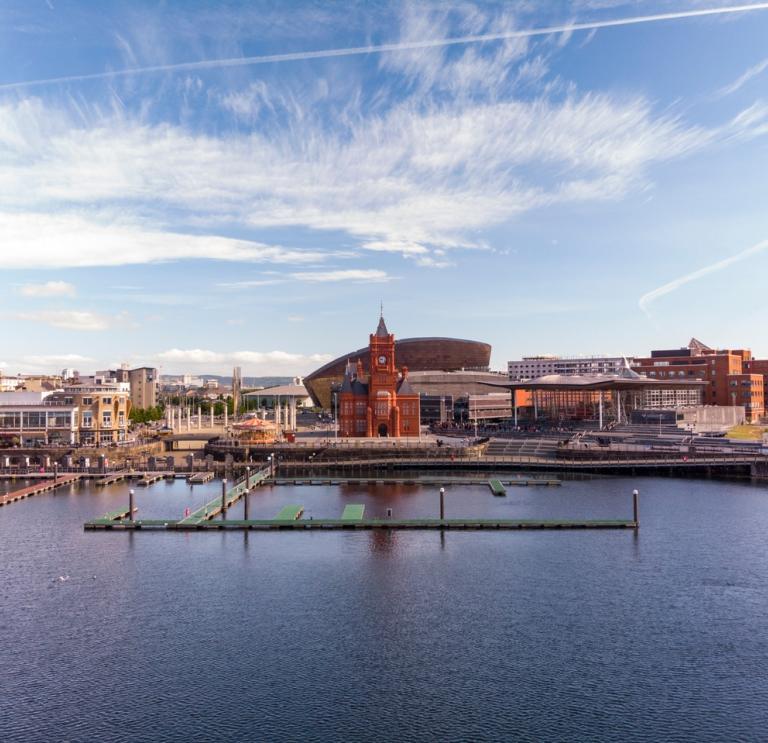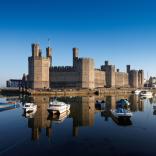What is Wales, exactly?
Wales is a country that forms part of the island of Great Britain. There are three countries that make up this island: Wales, and our neighbours England and Scotland.
Wales also forms part of the United Kingdom. The United Kingdom of Great Britain and Northern Ireland (to give it its full name) is a "sovereign state" that is formed of four countries: Wales, England, Scotland, and Northern Ireland, which is situated on the island of Ireland.
How is modern Wales governed?
While Wales has its own government and parliament today, from the early 1700s until the late 1990s. Wales was ruled in law by the government of the United Kingdom (UK). Both the UK Government and Parliament are based in Westminster in London, England.
There was a public vote held in Wales in 1997 to determine whether we should have more control over our own laws and government policies.
As a result of that vote, a National Assembly for Wales was created and certain powers started to be moved (“devolved”) from Westminster to Wales.
This process continued throughout the 21st century, with further powers to make laws and collect taxes moving to Wales recently.
Today, Wales has a legislature - Senedd Cymru (the Welsh Parliament in Welsh) that is responsible for making, scrutinising and passing laws, and an executive - the Welsh Government - responsible for making most of the day-to-day decisions that affect people who live in Wales.
Today, this means that Wales has two governments - the Welsh Government and the Government of the United Kingdom of Great Britain and Northern Ireland, each one with power and responsibility over different things.
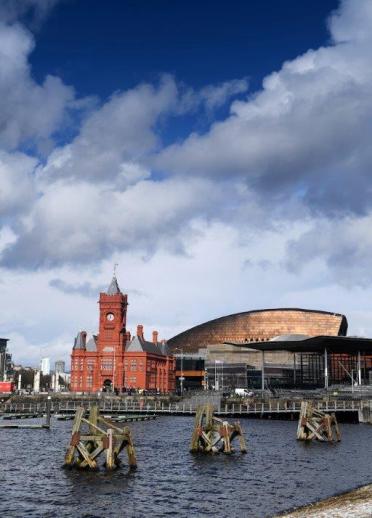
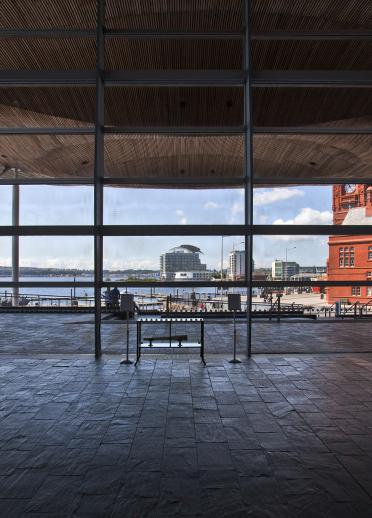
What does devolution mean?
"Devolution" of power is the process of moving power and responsibility from a central UK level to a more national level in Wales. This means that the people of Wales now have more say in certain areas of policy and law-making that affect their lives.
Senedd Cymru and the Welsh Government have responsibilities for a range of subjects. These include agriculture, the economy, education, the environment, health and social services, housing, local government, transport, devolved taxes and the Welsh language.
Senedd Cymru
Senedd Cymru (the Welsh parliament) is the legislature of Wales, meaning it is the place where laws are made. The Senedd is formed of 60 Members of the Senedd, elected to represent people from constituencies and regions across Wales. These Members of the Senedd (MS) are voted in during an election, which takes place once every five years. People who stand in an election, called “candidates”, are often members of a “political party” - a group of people who share broadly similar political views.
The Senedd is located in the capital city of Cardiff, in a distinctive building designed by the architect Richard Rogers. It is open to the public, who can book in for Senedd tours or to view Senedd proceedings from the public galleries.
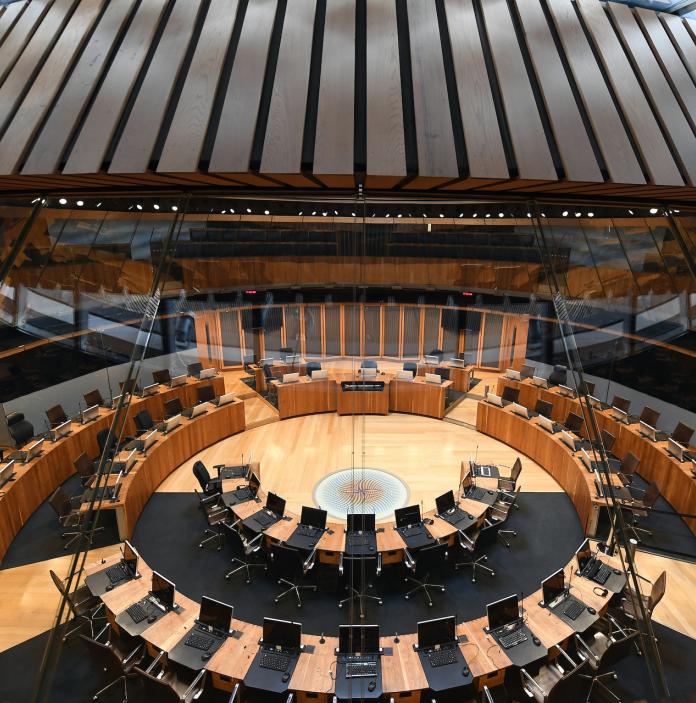
The Welsh Government
The Welsh Government is the “executive”, meaning that it takes most of the day-to-day decisions on how Wales is run. After an election, a government is usually formed by the political party with the most Members elected to the Senedd, although sometimes a government can be formed by two or more parties joining together to form a "coalition".
The government is led by the First Minister (currently the Right Honourable Mark Drakeford, MS). He is supported by a team of Ministers, chosen from Members of the Senedd. Ministers make decisions within certain subject areas.
The Welsh Government was established in 1999. Its largest offices are in Cardiff, our capital city, with other offices around Wales.
Members of the Senedd and representation
In elections, Wales is divided up into areas with roughly similar populations called “constituencies”. Candidates stand for election to represent each constituency. But the system for elections to the Senedd differs slightly from that used for the UK Parliament.
In UK Parliament elections, each constituency is won by the candidate with the highest number of votes, which is called the "first-past-the-post" system.
In Senedd elections, the "first-past-the-post" system is also used to choose a Member for each different constituency (40 in total). This means there may be political parties who have received a lot of votes in some areas, but have not been successful in winning a constituency. To ensure a broader range of political representation in the Senedd, there are an additional 20 Members, who are elected by a different system called the "list" system, which instead uses the total number of votes for political parties across a group of constituencies, called a region. The list system also uses a weighting measure, to allow for more representation for parties that did not gain constituency seats.
These 20 Members represent the five electoral regions of Wales, with four Members in each region.
People older than 16 years old have the right to vote in Senedd elections, but have to be 18 or older to vote in a UK Parliament election.
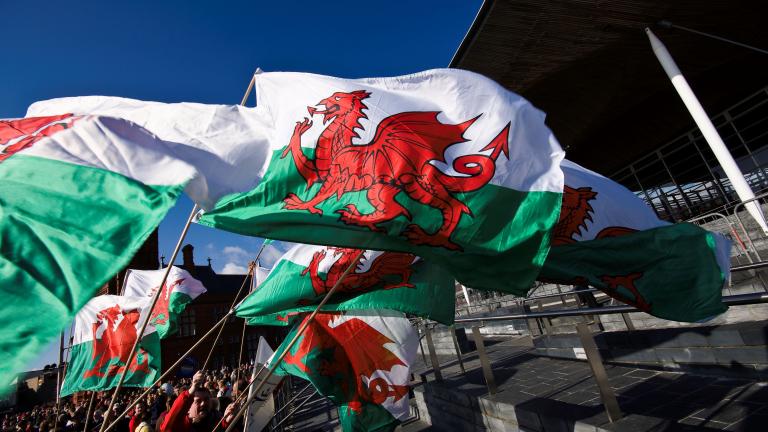
The Government of the United Kingdom of Great Britain and Northern Ireland
As not everything is devolved, some matters are still governed by the UK Government from Westminster. These include defence, foreign affairs, immigration, prisons, and crime and policing. The UK Government also collects most of the taxes and the UK Parliament makes laws for the whole of the UK. The Ministers of the UK Government are chosen from the Members of the UK Parliament and the Government is led by the Prime Minister.
Because of this, there are also Members of the UK Parliament elected from all constituencies in Wales. Wales currently has 40 of the 650 Members of the UK Parliament, although these numbers are due to change. These elections take place once every five years, but unlike the Welsh model, Members of the UK Parliament are voted in using the first-past-the-post system.
Wales in history
In medieval times, Wales had its own distinct laws, which were written down in the mid-10th century during the time of the Welsh King Hywel Dda (Hywel the Good).
Today, nearly 500 years since the end of the laws of Hywel Dda, Wales again has a growing set of distinct Wales-only laws and Senedd Cymru is a law-making and tax-setting parliament.
More information on the history of devolution (Senedd Cymru).
